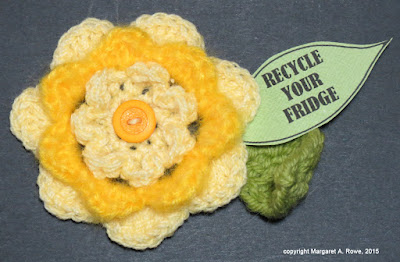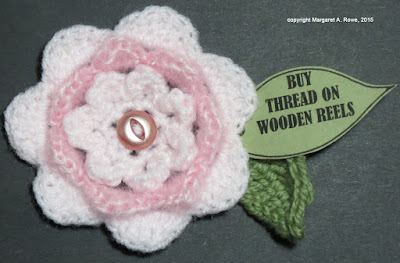1000 Flowers for the Planet - #624 Buy Bread Without Plastic
Up until the early
1970s you could still buy your bread from the man who travelled around in the
little bread van selling loaves from the back of his vehicle – full loaves or
half loaves, still warm from the oven. Now we have to go to the shop to buy our
bread – either the corner store, the supermarket or the bakery. Most of us buy
our mass produced bread in plastic bags secured at the top with a little
plastic clip, or plastic coated pieces of wire. We create a lot of plastic
landfill from our bread-eating habits alone. Both the plastic bag and the
plastic clip are dangerous items to let loose in the environment. Plastic bread
bags are just as capable of killing marine life as any plastic carry bag from
the supermarket. They float in waterways and clog up anything they come into
contact with. The bread ties are lethal too, adding to the billions of tiny
plastic bits we toss away during our busy lives. Whole islands of sea birds
suffer from the consequences of mistaking little pieces of plastic as food for
their young, who soon starve to death, their carcasses rotting away to reveal
mounds of plastic where a stomach once existed. Multiply each loaf of bread you
buy that generates plastic waste by the number of loaves you buy every year,
multiplied by the number of people around the world who do the same – just a
few?
We can change
our habits and create better outcomes by taking our own container to the bakery
and buying a fresh loaf, not wrapped in plastic, and put straight into the container
to take home. Eliminating just two pieces of plastic from everyday life will
make a huge contribution to cleaning up the planet. It’s an idea for those who
want to live plastic-free lives and a worthwhile idea for those who can only
cope with one change at a time. It will save resources, save money on
environmental cleanups and save a lot of wildlife from ghastly deaths.





























